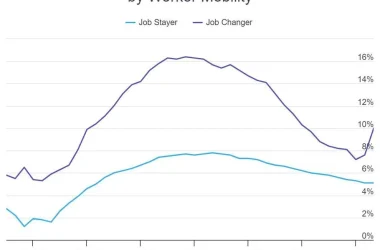By MAX GARLAND
Charleston Gazette-Mail
CHARLESTON, W.Va. — Charlie Dennie has walked every foot of a 30-mile route that snakes through South Charleston, Charleston and Kanawha City, familiarizing himself with the people and businesses in the planned path of a project he hopes will help West Virginia compete in the internet age.

(Photo by Chris Dorst)
“The easiest thing to do is simply walk that route, knock on doors and say, ‘What do you think?’” he said. “I can tell you we’ve tried to be very, very careful to try and get the public to understand what our intentions are and to try and not oversell this.”
Dennie is the director of special projects for Alpha Technologies, the technology service company that he says will begin building an underground fiber-optic loop in June under the path he has walked. The route runs through notable areas such as the Charleston Civic Center, West Virginia Regional Technology Park and Class A commercial buildings in downtown Charleston.
The project, slated to cost a total of $5 million (the state Economic Development Authority has provided a $2.2 million loan for Alpha), would be able to provide government entities and private businesses in the loop’s path with a gigabit internet connection.
A gigabit connection — 100 times the speed of the average broadband connection — is a significant upgrade for most cities, but provides particular value in a state that has long struggled with high-speed internet access.
Connection speeds in West Virginia have been a heavily discussed issue in recent months, as broadband access is a significant advantage for businesses involved online. A bill designed to create more competition among internet providers in the state (HB 3093), which proponents say would lead to expanded high-speed broadband access, was passed by the Legislature and awaits Gov. Jim Justice’s signature.
West Virginia is 48th among states in broadband accessibility, according to a Federal Communications Commission report.
Being able to conduct business and access data significantly faster via the fiber-optic loop would attract more business to the Charleston area, according to Alpha President and CEO Doug Tate.
“Our goal is to provide an infrastructure where we can help Charleston and South Charleston bring more businesses back into the area,” he said. “When the businesses we talk to evaluate coming to this area, infrastructure is always an issue, and the cost of connectivity is prohibitive. Hopefully this will allow them to reduce that initial expenditure.”
The opportunity to establish a gigabit connection speed is particularly appealing to Alpha’s own operations — the company’s primary reason for building the loop in the first place is to better connect clients to their data center at the Technology Park. The data center, once owned by Union Carbide, stores significant amounts of information for clients on Alpha’s servers.
Transferring that information is much like draining a pool, Dennie said — a faster connection is equivalent to a bigger drain.
“If your objective was to drain your pool and fill it up again, draining it with one small pipe is going to be difficult,” he said. “We’re moving data from one point to another with something 100 times that size.”
Much of the data center’s operations are focused around reliability and security for its clients. The servers must be running 24/7, so the center has redundant power connections to different grids on the site — if one connection is interrupted, the other takes over. A diesel generating plant, there since the Union Carbide days, provides emergency power if all services are down.
The project hasn’t hit any major bumps as Alpha continues to map out the precise route of the loop and gather the permits necessary for construction, Dennie said.
There have been small tweaks to Alpha’s initial route as it has been “refined and re-refined,” according to Dennie. The company is trying to have more of the loop go under alleyways in Charleston, instead of under Washington Street East between Capitol Street and the state Capitol Complex.
West Virginia’s 811 safe digging service has been helpful for a rough outline of what’s underground, but Dennie and the rest of Alpha want to make sure they avoid damaging vital infrastructure such as Appalachian Power’s transformer vaults.
Mapping the route has been a balance between avoiding interference with city operations and routing the cable in a way that covers businesses that may be able to use the connection, such as hospitals with patient data or media companies with large video files.
“You can’t avoid every place — it’s a laborious process,” Dennie said. “Every day you learn something you didn’t know the day before. That’s why you drive or walk these routes, to look at what makes sense.”
Dennie said many of Alpha’s clients are large businesses, but the data center and connection via the loop are scalable services for even small businesses in the area. Alpha is banking on those businesses to buy in on the service, as connection speed and data security continues to play a larger factor in day-to-day operations.
“There are people who have left [West Virginia] because they can’t get what they need for their data, and there are people who won’t come at all,” Dennie said. “I’m not one to always subscribe to the quote that they will come if you build it, but [the fiber-optic loop] would be a big help for us.”
See more the Charleston Gazette-Mail




